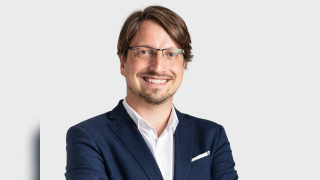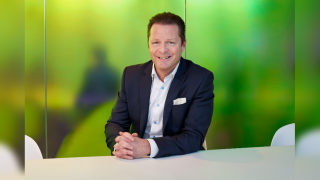We’re about to enter a period of consolidation in the metro fibre business, says one of the industry’s most prominent figures. Hunter Newby, who will be playing a prominent part in September’s Metro Connect Europe, is watching the tower companies as potentially key players in the market.
They have to, he says, because mobile operators – especially in places such as the US – are starting to distrust tower companies. “They’re landlords and they charge exorbitant rent,” he says. They have a lot of money, but the industry in the US is reacting: last November, the two biggest operators, AT&T and Verizon, entered into a joint agreement with a rival company, Tillman Infrastructure, to build hundreds of cell towers.
Tower owners are reacting by diversifying. “Companies such as Crown Castle and American Tower have a ton of money and could come to Europe and buy fibre networks,” says Newby. It’s already started in the US, he notes. Last year Crown Castle bought Lightower Fiber Networks for $7 billion.
If consolidation and acquisitions are to happen in Europe, then Metro Connect Europe is the place where deals will begin. “I’ve been a part of every Metro Connect since it started,” says Newby. “It’s part of the very fabric of the metro market. In the US it’s the conference where deals have been initiated and products have been discussed – I’m talking about national deals put together at that conference. It’s difficult to overstate it.” Now “I expect the same thing” at the first European event, he says: it takes place in Amsterdam on 12 and 13 September.
The opportunities for metro fibre are “proven”, he says. “Everyone needs fibre”, especially as network density increases – though he wonders whether the industry needs a new metric for telecoms. “It’s not just population density, it’s the device density. In terms of resources, this is not related to a single human being,” says Newby. That would include “every device the network interacts with. Without networks there is no internet of things.”
How do the North American and European metro fibre businesses compare? “Lots of European implementations are masterful,” says Newby, pointing to Germany’s GasLine, which is owned by 10 natural gas transmission and regional distribution companies, which have used their own rights of way along their pipelines.
“Every company from outside Germany uses GasLine. Germany doesn’t even realise how important that is. It should be a case study applied to every country in Europe. GasLine is very, very important, with neutral, dark fibre at reasonable rates. We can learn from Germany,” says Newby, who was the founder and CEO of Allied Fiber as well as an investor and partner in several other neutral colocation businesses including 1025Connect, Colo ATL, Fibre Centre, Netrality and NJFX. He has been involved in over $750 million worth of transactions in the business.
What can Europe learn from the US? “Scale, scale, scale,” he says. “But it needs to be scale with the right corporate structure. If a company such as GasLine were to be acquired by a financial operator the rules would change.” He admires other European fibre companies such as Eurofiber and euNetworks. “And there are so many niche players.” There will be consolidation, he agrees, “for scale”.
The new US trend for tower companies to acquire fibre may come to Europe, he says, as tower companies want to diversify their holdings. “Tower companies are going to keep acquiring fibre companies. The tower business is weak. “Newcomers into the market would be smart,” he adds, noting: “We call Crown Castle a newcomer.”






